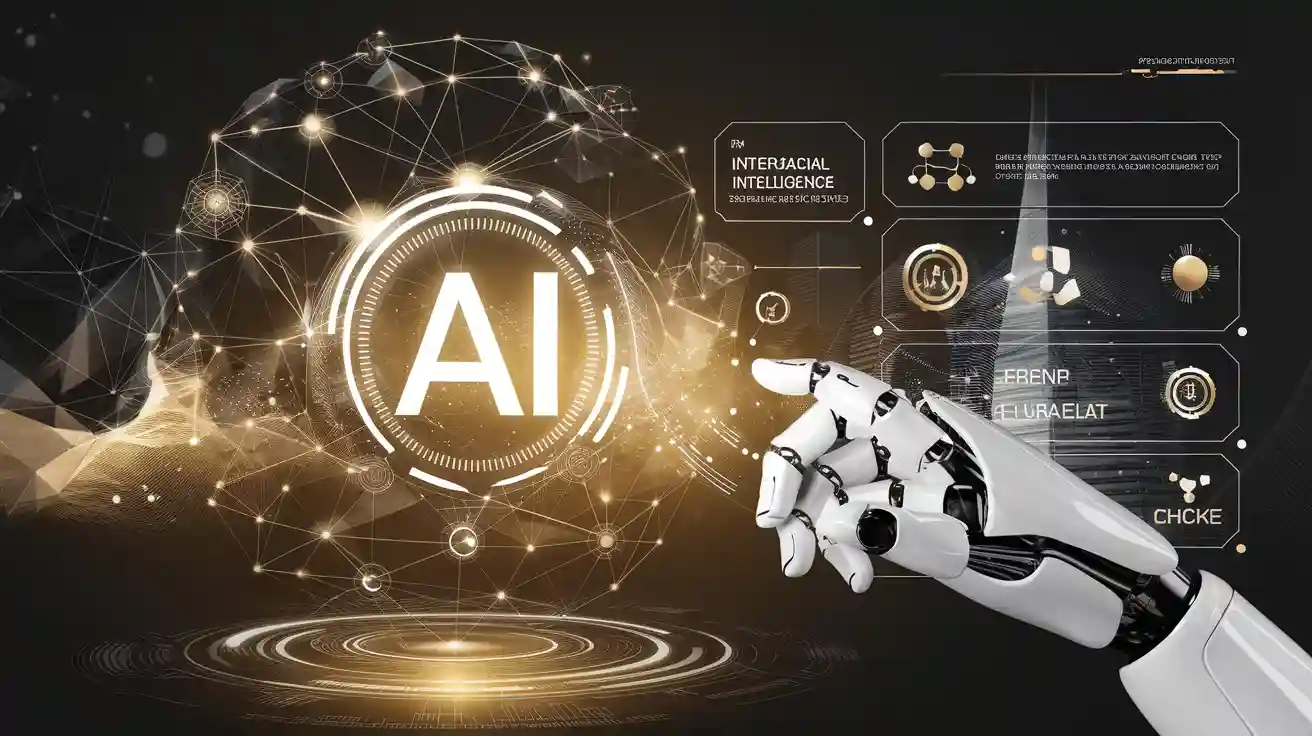OpenAI's Breakthrough Tools for Building AI Agents in 2025

OpenAI's tools for autonomous AI agents are transforming how systems operate. These tools assist in developing reliable agents that streamline tasks and generate innovative applications. For instance, businesses utilizing OpenAI's tools for autonomous AI agents experienced a 61% increase in work speed by automating mundane jobs. The market for AI agents is projected to expand from $5.1 billion in 2024 to $47.1 billion by 2030, highlighting their significant influence. By 2025, AI agents powered by OpenAI's tools will be essential for fostering new ideas and enhancing work efficiency.
Key Takeaways
OpenAI's tools help AI agents work faster by 61%. They do this by automating boring, repeated tasks.
The AI agent market will grow from $5.1 billion in 2024 to $126 billion by 2030. This shows they are becoming more important in many jobs.
AI agents save time on tasks. For example, they can cut resume review time by 75% during hiring.
OpenAI's Responses API has tools like web and file search. These tools help developers make better AI agents.
Companies using AI agents can give better customer service and work faster. By 2024, AI could solve 70% of customer problems.
Understanding AI Agents and Their Role in 2025
What Are AI Agents?
AI agents are programs that do tasks on their own. They use smart technology to make choices and work with people, systems, or environments. These agents use tools like machine learning to understand data, decide, and complete steps. For example, they can help plan meetings, study information, or support customers.
Researchers test how well agents work using benchmarks. Below is a table showing some benchmarks:
Benchmark Name | What It Measures |
|---|---|
AgentClinic | Tests AI in medical simulations. |
τ-Bench | Checks how AI interacts with people-like users. |
E-Web | Looks at planning and working with APIs. |
MLE-bench | Tests coding skills in competitions. |
CLASSic Framework | Measures cost, speed, accuracy, safety, and stability. |
IBM's Structured Evaluation | Reviews user interaction, ethics, and system performance. |
Why Are AI Agents Crucial for the Future?
AI agents are changing industries by doing boring tasks and helping create new ideas. In hiring, they cut resume review time by 75%, letting workers focus on bigger goals. They also boost productivity, with 85% of companies saying automation makes work faster. The adaptive learning software market, worth $3.9 billion in 2023, might grow to $23.1 billion by 2032, showing how important AI agents are.

Challenges in Building Agents
Combining language models, tools, and custom rules
Making agents work well means combining language models, tools, and rules. Developers must make sure these parts fit together smoothly. But many tools are hard to use, which makes building agents tricky.
Fixing reliability, errors, and task tracking
Developers struggle to make agents reliable. Studies show agents only finish 14% of hard tasks, while humans succeed 78% of the time. Fixing problems like errors and tracking tasks is key to improving agents. Also, there aren’t clear ways to measure how good agents are, which makes testing harder.
OpenAI's Tools for Autonomous AI Agents
Responses API
Combines Chat Completions simplicity with Assistants API tool-use capabilities
The Responses API mixes Chat Completions' ease with Assistants API's tools. This lets developers make smarter agents that handle tough tasks easily. OpenAI's tools help build agents faster and make them work better.
Built-in tools: web search, file search, and computer use
The Responses API has tools like web search, file search, and computer use. These tools help agents find data, study files, and use digital systems well. For example, Hebbia uses web search to help law firms and managers find useful facts in big data.
Usability improvements: unified item-based design, intuitive streaming events, and SDK helpers
The API adds features like item-based design, streaming events, and SDK helpers. These make it easier for developers to create agents that work well. Navan uses file search to give correct answers from articles, improving user help.
Pricing: Tokens and tools billed at standard rates
The Responses API pricing is simple. Tokens and tools cost the usual rates, making it clear for developers.
Built-in Tools in the Responses API
Web Search
The web search tool helps agents find live internet data. This is great for tasks like market research or checking competitors.
File Search
The file search tool lets agents find and study info in documents. It’s helpful for jobs like customer support, where quick answers improve service.
Computer Use
The computer use tool helps agents work with digital systems. It automates tasks like typing data or using software, making agents more useful.
Agents SDK
Features: configurable LLMs, intelligent handoffs, safety checks, tracing & observability
The Agents SDK has features like adjustable language models, safety checks, and tracing tools. These make sure agents are safe and work well. Safety checks are key for keeping agents reliable.
Use cases: customer support, research, content generation, sales prospecting
The SDK works for many tasks like customer help, research, and sales. It helps businesses save time by automating jobs and boosting productivity.
Example: Coinbase used SDK for crypto wallet interactions
Coinbase used the SDK to improve how users interact with crypto wallets. This made things easier for users and showed how useful the SDK can be.

The chart shows how well OpenAI's tools work. OpenAI's research model scored 26.6% on Humanity’s Last Exam, beating other models. This proves OpenAI's tools make strong and smart agents.
Practical Uses and Real-Life Examples
How Industries Use AI Agents
Helping Customers
AI agents have changed customer service by doing boring tasks. They answer questions, handle refunds, and give custom advice. IBM says AI agents can cut service costs by 30%. Statista reports that in 2024, 70% of customer issues were solved by AI alone. This helps businesses save money and make customers happier.
Research and Finding Market Trends
AI agents make research and finding trends faster and easier. They study big data to find useful patterns and help with decisions. For example, Hebbia uses OpenAI's web search tool to help law firms find key facts quickly. This saves time and helps people make better choices.
Writing Content and Finding Sales Leads
AI agents help create content and find new customers. They write good content for specific groups, saving time for marketing teams. In sales, they find leads, study customer habits, and suggest outreach plans. Statista in 2024 said 69% of stores saw more money thanks to AI.
Real-Life Success Stories
Navan Using File Search for Better Help
Navan uses OpenAI's file search tool to give better customer help. It finds the right info fast, so answers are quick and correct. This makes customers happy and support teams more efficient.
Luminai Automating Workflows
Luminai uses AI agents to do hard tasks like entering data. This reduces manual work and makes processes smoother. Businesses can then focus on bigger goals instead of small tasks.
Hebbia Using Web Search for Smarter Decisions
Hebbia uses OpenAI's web search tool to get live data. This helps companies find important info and stay ahead of others. It’s very useful for industries needing up-to-date facts.
Newoaks AI Building Smart Agents with Responses API
Newoaks AI uses OpenAI's Responses API to make smart AI agents. These agents do jobs like customer support and data study. This shows how OpenAI tools help businesses work better and create new ideas.

Broader Implications and Vision for AI Agents
Impact on Existing APIs
Chat Completions API: Still important
The Chat Completions API stays a key part of OpenAI's tools. Many developers use it for tasks without needing extra features. OpenAI keeps it strong by adding new models and updates. The Responses API works with it, giving more options but not replacing it. This lets developers pick the right tool while staying flexible.
Assistants API: Ending by mid-2026
OpenAI plans to stop the Assistants API by mid-2026. The Responses API will take its place with better features and tools. Developers are encouraged to switch to the Responses API for more benefits. This change shows OpenAI's focus on making tools simpler and more effective.
OpenAI's Vision for AI Agents
AI agents in jobs
OpenAI sees AI agents becoming a big part of work. By 2025, they will handle most customer service tasks, changing industries like retail and healthcare. Companies will use them to solve hard problems and reach goals. Over 75% of businesses plan to use AI agents for smarter decisions. The market for AI agents could grow to $126 billion, showing their importance.
Boosting work and making a difference
AI agents make work faster and more personal. They can learn and do hard tasks that were once impossible to automate. By 2030, they will be the main users of business systems, improving how companies run. North America and Asia are leading in using AI agents, showing their power to change industries.
Commitment to Innovation
Better API connections
OpenAI keeps improving by making APIs work better together. The Responses API helps developers solve hard problems with one call. It also has tools to check how well agents work. These updates help businesses make smarter choices and trust AI agents more.
New tools for faster work
OpenAI's new tools help deploy and improve AI agents. For example, Deep Research looks at lots of data quickly, saving time. It also uses private data to give helpful insights for businesses. These tools are useful in areas like healthcare and law, where good decisions matter.
📈 Key Trends: AI agents are expected to grow fast, with a 45.1% yearly increase from 2024 to 2030. This growth will change how industries work and improve efficiency.
OpenAI's tools for autonomous AI agents are a big step forward. These tools make work easier, more reliable, and open new ideas. By 2025, AI agents will handle over 80% of customer interactions, boosting work speed and creativity. The market for AI agents is expected to grow to $126 billion, showing their rising value in businesses.
Evidence Type | Description |
|---|---|
Tool Launch | OpenAI's 'Deep Research' tool will change research by combining data. |
Market Impact | AI agents will take care of most customer tasks, improving workflows. |
Financial Growth | The AI agents market will grow fast, reaching $126 billion by 2025. |

By using AI agents in daily tasks, over 75% of businesses will make quicker choices and work more efficiently. These tools will reshape how people work, making AI agents a key part of modern jobs.
FAQ
What is the Responses API, and how does it help developers?
The Responses API mixes Chat Completions' ease with advanced tools. It has built-in tools like web search, file search, and computer use. These tools help developers make smarter AI agents for tasks like research, support, and automation.
How does the Agents SDK improve AI agent development?
The Agents SDK has adjustable language models, safety checks, and tracing tools. These features make sure agents work safely and reliably. Developers can use it for tasks like customer help, writing, and sales, making it useful for many businesses.
Are OpenAI's tools suitable for small businesses?
Yes, OpenAI's tools work for all business sizes. Small businesses can use the Responses API and Agents SDK to save time, improve customer service, and boost productivity. The pricing is fair, with tokens and tools at regular rates.
What industries benefit most from AI agents?
Industries like customer service, research, marketing, and sales gain a lot. AI agents do boring tasks, study data, and give insights. For example, Hebbia uses web search for market research, and Navan uses file search for better customer help.
Will the Assistants API still be available in the future?
OpenAI will stop the Assistants API by mid-2026. Developers should switch to the Responses API, which has better tools and features. This change shows OpenAI's focus on making tools easier and more helpful.
💡 Tip: Try the Responses API now to prepare for the change and use its full features for your projects.

